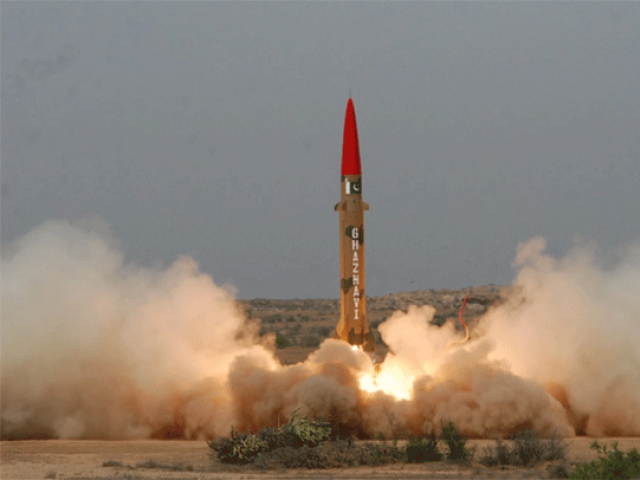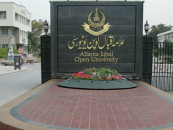Pakistan rules out talks on nuclear programme freeze
Islamabad rejects US demand to negotiate on FMTC, which aims to ban production of uranium, plutonium

Islamabad rejects US demand to negotiate on FMTC, which aims to ban production of uranium, plutonium. PHOTO: ISPR
Islamabad has long been resisting US pressure to freeze its nuclear programme by agreeing to sign the controversial Fissile Material Cut-off Treaty (FMCT). The FMCT is aimed at placing a ban on the production of fissile materials, including uranium and plutonium.
Nuclear programme: Bill seeking changes in NCA Act dropped
At a meeting of the Pakistan-US Working Group on Security, Strategic Stability and Nonproliferation, the American delegation pressed Islamabad to start negotiations on the treaty dealing with fissile materials.
In response, Pakistan underlined its preference for broader Fissile Material Treaty (FMT) that “addresses the asymmetries in existing stocks” and said its position would be determined by its national interests and the objectives of strategic stability in South Asia,” said a joint statement issued by the Foreign Office.
The eighth round of the working group, which is part of the strategic dialogue, was co-chaired by Pakistan’s Foreign Secretary Aizaz Ahmed Chaudhry and Undersecretary of State for Arms Control and International Security Rose Gottemoeller.
Pakistan believes the treaty must include existing stocks otherwise the imbalance of power in the world will simply be further enhanced. The country’s reluctance to sign the treaty is also attributed to the discriminatory policies of the West on civilian nuclear cooperation.
US should remain in Afghanistan to protect Pakistan’s nuclear arms, says Trump
While rejecting talks on the FMCT in its current form and conditions, Pakistan, however, assured the US delegation that it would not be the first in its region to resume nuclear testing, and expressed its support for the objectives of Comprehensive Test Ban Treaty (CTBT).
The meeting of the working group was held against the backdrop of recent missile testing by archrival India that, according to Pakistan, would disturb the strategic balance in South Asia.
The Foreign Office’s statement said both sides recognised their interest in strategic stability and discussed their respective concerns over nuclear and missile developments in South Asia.
In that context, Pakistan also expressed concerns on growing conventional imbalance, and reiterated its longstanding proposal for the Strategic Restraint Regime (SRR) in South Asia and its readiness to pursue measures in the region aimed at building confidence and avoidance of an arms race.
Both sides emphasised the importance of meaningful dialogue and progress in this area and expressed hope for lasting peace in South Asia and the resolution of outstanding disputes through peaceful means.
According to the statement, the US delegation recognised Pakistan’s significant efforts to harmonise its strategic trade controls with those of the Nuclear Suppliers Group (NSG) and other multilateral export control regimes.
India’s nuclear programme ‘unsafe’: report
Both sides agreed on the value of Pakistan’s continued engagement, outreach and integration into the international non-proliferation regime.
The Pakistan delegation expressed its confidence regarding their country’s credentials to become full member of the export control regimes, particularly the NSG and the Missile Technology Control Regime (MTCR).
Both sides committed to continue cooperation related to export control capacity-building under the US Export Control and Related Border Security (EXBS) programme.
The Foreign Office said Pakistan stressed the need for access to peaceful uses of nuclear technology as a socio-economic imperative. Pakistan also indicated its interest in cooperation with the US on peaceful applications of the nuclear science in areas such as health, agriculture and water.
The US expressed its interest in exploring such nuclear science cooperation with Pakistan.
Published in The Express Tribune, May 18th, 2016.



















COMMENTS
Comments are moderated and generally will be posted if they are on-topic and not abusive.
For more information, please see our Comments FAQ